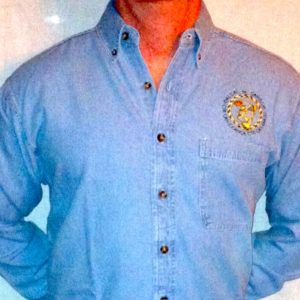We are in the Churchyard (grave) many a day.
Note: You might hear a more poetic Hiberno-English translation of this seanfhocal, “We spend many a day asleep in the clay.” This is not necessarily the same as the English exhortation “Eat, drink, and be merry, for tomorrow we may die.” One could invoke this proverb to work longer, as well as to play harder. Perhaps, another rhetorical English equivalent was written by Thomas Pinchon who ‘quoted’ an epitaph from an old New England gravestone, “Death is a debt to nature due. Mine is paid. How about you?”
Note also: This seanfhocal is an example of a common idiomatic use of the preposition ‘ar’ and a pronoun. In this case, the preposition ‘ar’ is combined with the old pronoun ‘sinn’ to form the prepositional pronoun ‘orainn.’ ‘Orainn’ means ‘on us.’ So translated literally, this seanfhocal says, “Many a day is in the churchyard on us.” It is a reflection of a different Irish perspective.
- We are not in the grave. The grave is on us.
- I do not have a cold. Tá slaghdán orm. (A cold is on me.)
- You are not hungry. Tá ocras ort. (Hunger is on you.)
- They are not afraid. Tá eagla orthu. (Fear is on them.)
- She is not Siobhán. Siobhán atá uirthi. (Siobhan is that [name] on her.)
In Irish, a person does not ‘have’ a sickness. A person is not “one and the same” as his condition, or his emotions, or even his name. These are transient and ethereal things. They are not solid things that one can hold and therefore ‘have’. Isn’t it obvious then, that these are simply things that are on you, like a grave?
